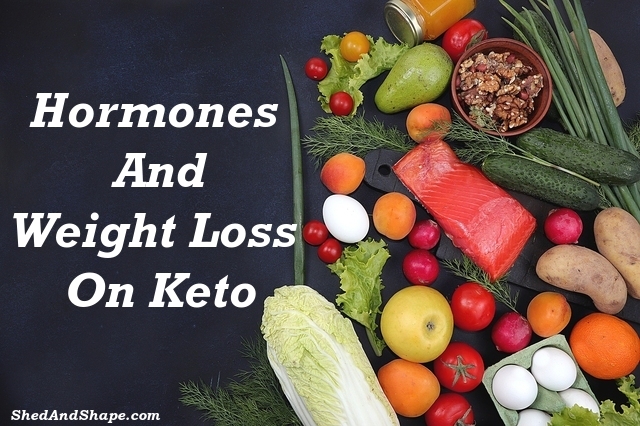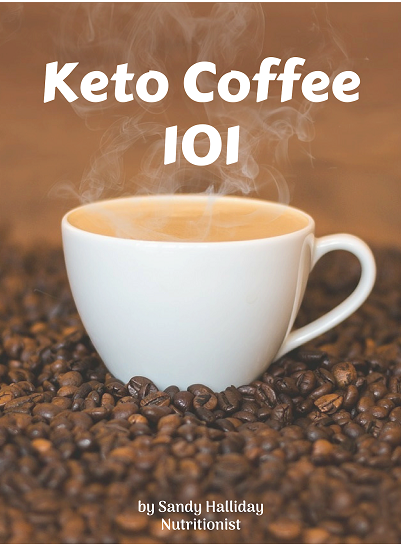You may not be aware of this, but your hormones and weight loss are directly related. Hormones are chemical substances produced by glands and sent into the bloodstream to the various tissues in the body where they affect their activity.
Your weight is mainly controlled by hormones. Hormones greatly affect your appetite and the amount of fat that you store in your body.
So, it’s no surprise then that those who suffer from hormonal imbalance tend to have a hard time losing weight.
The good news is the keto diet can for many people help restore hormonal balance. If done right, it can mitigate all the symptoms of hormonal imbalances, including weight gain, hot flashes, low sex drive, and mood swings.
Related reading: Diet for Hormone Balance: Is Keto Best?
Hormones and Weight Loss
Keto and Insulin
When it comes to hormones and weight loss, it’s important to understand the role of insulin. This is a hormone produced by the pancreas which allows your cells to take in blood glucose to be used to create energy, stored as glycogen or converted to fat and stored in cells depending on what your body needs.
As the main hormone governing storage of fats in our body, insulin is responsible for informing the fat cells when it’s time to store fats.
The keto diet can help improve insulin performance. Insulin resistance is a common problem since people are not aware of this problem until they start developing chronic health issues, such as diabetes.
Once the cells in your liver, muscles, and fat stop absorbing the glucose that you eat it will have nowhere to go. As a result, your blood sugar level will increase. In response, your pancreas will produce even more insulin.
It may be able to keep up for a while, but once your pancreas can no longer produce enough insulin to control glucose, that’s when the problem starts. As stated in Diabetes.co.uk,
“Resistance to insulin causes the body to produce more insulin which leads to increased hunger, higher blood pressure, and weight gain.”
Since the keto diet restricts your carb consumption, your pancreas does not need to produce so much insulin as there will be less glucose to control. This can make your muscles and fat cells become more responsive to insulin, which prevents diabetes and weight gain.
Being insulin sensitive helps you stay slim, lowers your risk of cardiovascular disease, Alzheimer’s disease, and dementia. During the menopause women tend to have fewer flashes or night sweats and have less at risk of osteoporosis.
Related reading: Is A Keto Diet Heart Healthy?
How Keto Affects Other Hormones
Aside from insulin, several other hormones play a part in controlling our weight. To further understand the link between hormones and weight loss, let us understand how these hormones control our weight and find out how keto can help.
Leptin
Leptin, which comes from the Greek word meaning “thin” is also known as the “satiety hormone”. It has the ability to reduce our appetite and make us feel full. As a signaling hormone, the role of leptin is to send signals to the hypothalamus, the part of our brain that regulates appetite and food intake.
Related reading: How A Low Carb Diet Keeps Your Appetite Under Control
In people who are overweight and obese, their leptin system does not work as it should. This condition is referred to as leptin resistance, where the signaling of leptin is impaired. As a result, the message to stop eating will not get through to the brain, which makes them eat more than they should.
As a low-carb, high-fat diet, the keto diet appears to have a positive effect on leptin sensitivity. Once you start losing weight on keto, you will feel full easily since your brain will be able to properly receive the signal to stop eating.
Ghrelin
Another hormone that affects our weight is ghrelin, also known as the “hunger hormone”. Once your stomach is empty, your body will release ghrelin to signal the hypothalamus that it’s time to eat.
However, in people who are overweight, it was found that their ghrelin levels are often lower compared to people with normal weight. As a result, their hypothalamus will not receive the signal to stop eating, which makes them eat more than they should.
Experts suggest that one of the best ways to improve the function of ghrelin is to avoid sugar, such as sugary drinks and high-fructose corn syrup. They also advise eating protein in every meal, especially at breakfast, which helps to lower ghrelin levels and promote satiety.
When you follow the keto diet, you will be eating fewer carbs and more fats and protein, thereby improving the function of ghrelin.
Related reading: Benefits of Fat for the Keto Diet
Cortisol
Cortisol, known as the “stress hormone”, is another hormone that plays an important role in controlling our weight. Therefore, when it comes to understanding the link between hormones and weight loss, it’s important to understand the role of cortisol in our body.
Related reading: 3 Ways Stress Affects Your Weight Loss Efforts
Just like the other hormones, cortisol is important. However, having an extremely higher level of cortisol could lead to overeating, which leads to weight gain.
The keto diet affects cortisol. This hormone is released by the adrenal glands, and if you eat a lot of carbs, you could trigger adrenal exhaustion in your body. That’s because when you eat refined carbs, your blood sugar will increase too quickly. This triggers insulin which can cause the blood sugar to drop rapidly, leading to a stress response.
Eventually, the adrenal glands won’t be able to repair themselves, and this affects cortisol. By restricting your carb consumption in a keto diet, the regulation of cortisol metabolism will be greatly improved.
Cutting carbs may increase cortisol
On the other hand, according to Natasha Turner, a naturopathic doctor, in some women she sees, cutting carbs drastically can cause an increase in cortisol. This can happen if you need more protein than is usual on the keto diet.
If this is the case, burning protein for energy instead of fat or carbs causes stress on the body causing an increase in cortisol levels. Remember, there is no one diet that is right for everyone.
Final Thoughts
Hormones work together in increasing or decreasing our appetite and fat storage, which explains why hormones and weight loss are directly related. If any of these hormones do not work properly or become out of balance you will find it hard to lose weight.
Fortunately, the keto diet, in most cases, can help make these hormones function properly. By restricting your consumption of carbs, your insulin resistance should be improved. And as stated above, the keto diet also has powerful effects on leptin, ghrelin, and cortisol, which further contributes to your ability to lose weight.
But, some women appear to need higher carbs than is usual on a keto diet. According to Dr Taz Bhatia:
When we don’t get those complex carbs, we have a shift in serotonin levels, a shift in progesterone, and shift in insulin metabolism. All of that in turn affects our health and can make insulin levels go up and cause us to gain weight.
When you first get started on the ketogenic diet, you may notice some hormonal changes. This often occurs as a result of your body adjusting to the new fuel source of fat instead of glucose.
But, if you find yourself struggling to lose weight in spite of following the keto diet or start to put it on again after losing it even though you are not eating excessive calories and are doing enough exercise then you may need to increase your carbohydrate intake.
So, I hope this has given you some insight into how hormones and weight loss on keto are related.










